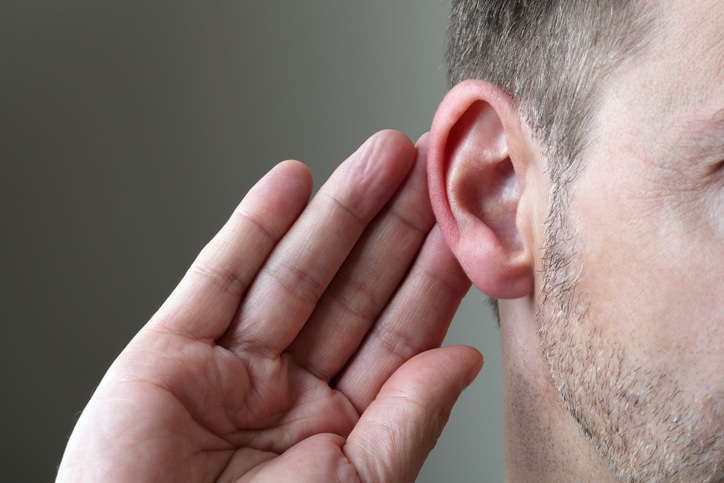About one in three seniors in the United States has hearing loss. And in people 75 and older, nearly half have serious difficulty hearing.1
Hearing loss usually comes on gradually. It’s caused by reduced blood flow to the tiny blood vessels that nourish the nerves and cells in your middle and inner ear.
But a new study reveals there may be a surprising solution to many cases of hearing loss.
Researchers at Pennsylvania State University College of Medicine studied the records of more than 300,000 adults in Pennsylvania. Their ages ranged from 21 to 90. They identified people who had both iron deficiency anemia—a shortage of healthy red blood cells due to lack of iron in the body—and hearing loss.
They found that people with iron deficiency anemia (IDA) were 2.4 times more likely to have hearing loss compared to those with normal iron levels.2
Recommended for You: The most crucial anti-aging nutrient for your body
It gives you energy, improves immune function and has tremendous heart benefits. Preliminary evidence shows it can slow down Alzheimer’s, treat Parkinson’s and reduce the damage caused by stroke. Your cells use it to produce energy… And it delays the aging process!
But starting at age 20, your body’s levels of it start to drop. By the time you’re 80, it’s all but disappeared. Luckily, it’s easy to get in supplement form. Find out how to get all the details, HERE.
The researchers concluded that IDA allowed damage to occur in the delicate blood vessels in the ear and the nerve cells, which brought on the hearing loss.
They recently published their study in the journal JAMA Otolaryngology-Head and Neck Surgery.
But the problem isn’t just that IDA is linked to hearing loss… It’s also that IDA is far more common than most people realize.
Iron Deficiency Is Common with Age
Iron helps your body produce hemoglobin, the molecule in your blood that carries oxygen. It allows you to maintain healthy cells, skin, hair, and nails. Without enough iron you develop IDA. This is the most common form of anemia in the elderly.3
As we age, we absorb less iron. This happens for a few reasons. First, we don’t eat enough iron-rich foods. Second, many people begin taking aspirin or nonsteroidal anti-inflammatory drugs (NSAIDs) to battle joint pain or to prevent heart disease. These medications can cause stomach bleeding that limits how much iron we absorb.
More than 30% of the world’s population—about two billion people—are anemic. The vast majority of these cases are due to iron deficiency.4 If you are experiencing hearing loss, you could be one of them.
Other signs of iron deficiency include fatigue, pale skin, chills, and blood in your stool. If you are prone to infections, that could be another indicator of iron deficiency.
End Your Iron Deficiency
The good news is that you can end this deficiency by eating foods rich in iron. These include dark leafy greens, oysters, grass-fed meats, pastured eggs, and raisins.
If you are worried that you can’t absorb enough iron from your diet, take a supplement. If you are a woman between 19 and 50, take 18 mgs per day. Women over 50 need only 8 mgs per day. For men, take 8 mgs per day, no matter your age.5
Like this Article? Forward this article here or Share on Facebook.
References:
1https://www.nidcd.nih.gov/health/age-related-hearing-loss#1
2http://jamanetwork.com/journals/jamaotolaryngology/article-abstract/2594264
3http://www.irondisorders.org/elderly
4http://www.who.int/nutrition/topics/ida/en/
5http://www.webmd.com/diet/supplement-guide-iron#1-3

